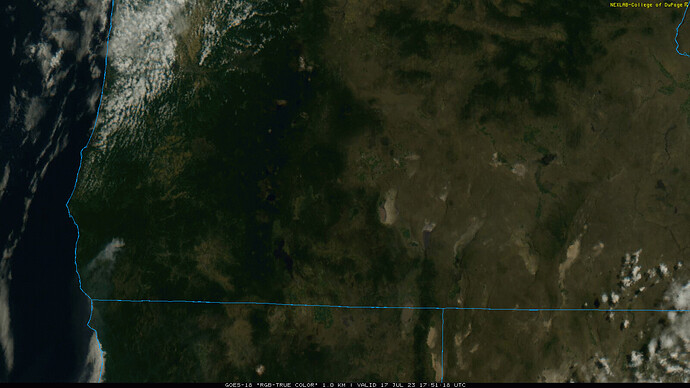Wouldn’t it have been better to allow logging and utilize some of that biomass? Second concern is air quality… wildland fire smoke is the biggest cause of air pollution on the West C
Depends on whether ya think biomass needs to be ‘utilized’. A forest is a functional thing in itself.
Meanwhile, summer smoke in the West Coast mountains is unfortunately, something people will need to adapt to. Sucks for the PCT hikers, Central Valley ag workers—we need to figure something out there—but the decades without smoke were probably the anomaly in the long term, not the recent years with it back. The more healthy burning that can be done in the other seasons with good conditions for ventilation, the better.
You’re saying the entire population of the West, and occasionally the entire US should suffer and allow massive air pollution because the USFS cannot manage their land ? That’s insanity. Fire is a management tool and the USFS is misusing that tool… wildfire is not included in NEPA. Prescribed fire under defined weather and fuel conditions might be allowable…but you simply can’t burn your way to healthy forests.
I don’t think it’s a question of what we’ll ‘allow’, as many of the significant smoke-producing incidents have been essentially beyond our control and will continue to be without landscape-scale Rx burning. Rock and a hard place. That said, we’re getting off topic.
Looking better (more muted) on satellite IR than this time yesterday. Wonder if it’ll hold.
This thread may not be the right place to have this discussion, if so I apologize.
There is reason to believe that air pollution from prescribed fires is considerably less dangerous than the pollution from massive wild fire. That reason is that it seems that the most dangerous pollutant is PM 2.5 (Particulate Matter smaller than 2.5 micrometers). PM 2.5 is hard on lungs but worse it gets into our blood stream and may even pass the blood/brain barrier. Little balls of weird carbon compounds are not good for any of our organs. We are not equipped to clean them out.
Big runs in heavy fuels result in a lot less complete combustion – thus a lot more PM 2.5 – then does a clean burn of the understory or piles of dead and downed.
The few studies that have been done seem to support this logic, but the answer is not fully locked down.
Our forest are a mess and we don’t fully understand how to clean them up or where the money to do it will come from.
It seems pretty clear that we need a multi-pronged approach and that we need to be careful to be skeptical of our own thinking so that we can learn as we go forward.
Thanks
The reason they held off on tanker drops was because they were still getting civilians out of the area.

